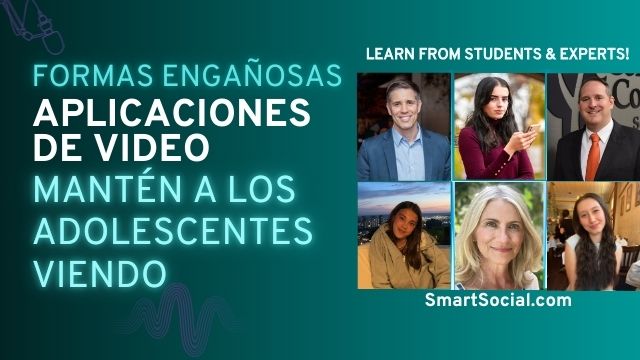Guía de seguridad para padres de Twenty App (anteriormente Mappen App)
Green Zone App
(Click here to learn more)
Dangerous Social media challenge
(Click here to learn more)
Red Zone App
(Click here to learn more)
Gray Zone App
(Click here to learn more)
In 2019, the Mappen app was rebranded as the Twenty app. The major difference between the Mappen app and the Twenty app is that at the time of this update the Twenty app is only available in New York, Los Angeles, Miami, Chicago, Boston, Las Vegas, San Francisco, and Philadelphia with new markets opening in the future. We've updated this parent guide to help parents keep their kids safe on the Twenty app. The Twenty App (formerly called the Mappen App AKA: Make Something Happen) is a social media app that focuses on location sharing. Users share their location on the app and what they’re doing with their friends so that they can get together in real life.
Parent & educator training video
What is the Twenty App (formerly Mappen app)?
- The Twenty app is a social media network that focuses on location sharing
- Users share their location and what they’re doing with their friends so that they can get together in real life
- When setting up the Twenty app, users are asked to set a “home” location which could be their home address
- A user’s friends list is made up of their phone’s contact list
- The “friends nearby” feature lets users know when they’re friends are close by or on their way
- Direct messaging allows users to talk one-on-one or in groups with their friends. Messages disappear after 24 hours
- Users can go “invisible” and hide their location from everyone (or specific contacts) for up to 8 hours. After 8 hours their location becomes visible again
The dangers of sharing your contacts with apps:
Contacts are like money, once you put money in someone else's bank account, there’s no telling what they will do with it (or if they will give it back).If a company wants access to your contacts, BE VERY CAREFUL. Josh suggests: Don’t share contacts, but if you must then only give publicly traded companies access to contacts.
Why should parents care?
- The purpose of the app is to share your location with friends 24/7 which is not safe for students
- Apps that use location sharing services make it easy for predators to target children. It’s easy for predators to make fake accounts pretending to be kids to learn where children live, where they go to school, and the locations they visit frequently
- The app has private messaging which is a feature a lot of teens use to hide their activity from their parents
- Even if a user doesn’t have a cellular plan, they can make calls using wifi
- Users cannot deactivate their account unless they contact the developers which makes it less likely for kids to delete entirely
The Twenty App (Formerly Mappen App) in the News:
A new meetup app called Mappen is spreading fast among kids as young as elementary school. Anytime there is location services available, that is a red flag for [law enforcement] and parents. It’s a roadmap for someone to know [a child] hangs out here, this is their house, this is where they go to school. A lot of kids will have their friends on there but who has access to their friends? Then likewise, can see them on their friends list, that’s how we get infiltrated by sex offenders. –ABC Denver
If you’re a parent, you’re going to want to check to see if [Mappen] is on your child’s phone because it poses as a casual way to meetup with your friends but a predator could get ahold of this. Anyone can add you on the device and although you have to accept the invitation it is just another way for predators to know where your child is. –NBC Tampa
The features of [Mappen] are not new but what is different is that it’s targeting that to kids. It looks a lot like the maps section of Snapchat. You can make phone calls over Mappen and leave no trace. The app is free because it exists to sell your information. Look in the privacy policy and the app clearly states that the company that develops it will sell everything from your name, photos, school, and what you do every day. –NBC Knoxville
What Common Sense Media says about the Twenty app (formerly Mappen)
If teens don't stay on top of the settings, they may continuously share their location which is a problem for a wide variety of reasons, including the fact that they might not make the best choices about who to add. The most likely problem, however, is fuel for teen drama, so if your kid can see friends hanging out but wasn't invited, there'll be hurt feelings. The 'hide' feature, though likely meant to safeguard feelings, is another potential drama-creator if someone forgets to use it.
The dangers of location sharing
[Location sharing] can be dangerous, because you are giving up your privacy… and there is a slight -- very slight -- possibility that someone could be wanting to do you harm and knowing your location is a bad idea. –USA Today
For safety reasons, avoid sharing your location publicly. Google makes it easy to publish a web link where anyone can follow your live location. To fend off [predators], send the link only to the intended recipients; avoid posting it on public sites like Twitter or Facebook. –The New York Times
[The] director of the Digital Media Lab at University of Massachusetts Boston, agreed that as a parent, he’d likely tell a child to disable the tracking feature, but also emphasized that users of any age can fall victim to the kind of danger that worries State Police. –Boston Globe
What can parents do?
- If your student has the Twenty aoo (formerly Mappen app), delete it immediately and explain the dangers of the app with your teen
- In the settings of your child’s phone, ensure that location sharing services is set to “never” for all social media apps
- Talk to your children about the risks of location sharing to help them better understand why you are setting limitations
- Have regular discussions about who your children should and should not be talking to (and adding to their friends lists) online
- Challenge your teen to find offline ways to make plans with their friends. Help them create invitations they can hand out at school without leaving anyone out or hurting anyone’s feelings
Conclusion
Similar to Snapchat's "Snap Map", the Twenty app is a social media network that focuses on location sharing. This app is not safe for students to use and if your student has it, delete it immediately. Predators use location sharing apps to target victims and the app only works as intended if students share their location 24/7.Law enforcement officials are warning parents about the dangers of this app because it specifically targets younger students. The best way for parents to protect their students on social media is to have a discussion about the dangers of location sharing and why guidelines are being set.
What are your best tips for keeping students safe on apps like Twenty? Let us know in the comments below!
Protege a tu familia y participa para tener la oportunidad de ganar fantásticos premios
Hágase miembro o inicie sesión para obtener más información sobre este tema
Protege a tu familia y participa para tener la oportunidad de ganar fantásticos premios

., ¡comienza a aprender en esta página para ganar puntos para una tarjeta de regalo de Starbucks! **
Hola, soy Josh, el fundador de SmartSocial.com.
No abandone esta página hasta que complete nuestro formulario de comentarios que aparecerá cuando aprenda de los recursos...
Conviértase en un padre muy informado (VIP) para recibir nuestras sugerencias de redes sociales en su correo electrónico todos los martes y jueves.



Hola, soy Josh, el fundador de SmartSocial.com. Projeja a su familia respondiendo mi cuestionario de 1 minuto
Este cuestionario lo ayudará a comprender qué tan segura es su familia.


Schools and distritos: Asociarse con nosotros para proteger a su comunidad en línea
Nuestras presentaciones remotas (y nuestro sitio web) enseñan a más de un millón de estudiantes cada año cómo brillar en línea. Enseñamos a los estudiantes cómo se pueden usar sus cuentas para crear una cartera de logros positivos que impresionen a las universidades y a los empleadores.


Unete a nuestro Inteligente Podcast social
cada semana en iTunes
Con más de 240 episodios, Josh Ochs entrevista a psicólogos, terapeutas, consejeros, maestros y padres mientras te muestra cómo navegar por las redes sociales para algún día brillar en Internet.
Escucha en:




.jpg)
.jpg)
%20Parents%20guide%20to%20Yo%E2%80%A6.jpg)

.png)